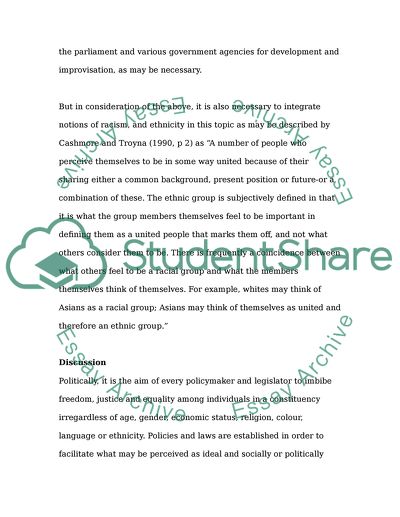Cite this document
(“Social Care and Antiracism Essay Example | Topics and Well Written Essays - 2500 words”, n.d.)
Social Care and Antiracism Essay Example | Topics and Well Written Essays - 2500 words. Retrieved from https://studentshare.org/sociology/1515280-social-care-and-antiracism
Social Care and Antiracism Essay Example | Topics and Well Written Essays - 2500 words. Retrieved from https://studentshare.org/sociology/1515280-social-care-and-antiracism
(Social Care and Antiracism Essay Example | Topics and Well Written Essays - 2500 Words)
Social Care and Antiracism Essay Example | Topics and Well Written Essays - 2500 Words. https://studentshare.org/sociology/1515280-social-care-and-antiracism.
Social Care and Antiracism Essay Example | Topics and Well Written Essays - 2500 Words. https://studentshare.org/sociology/1515280-social-care-and-antiracism.
“Social Care and Antiracism Essay Example | Topics and Well Written Essays - 2500 Words”, n.d. https://studentshare.org/sociology/1515280-social-care-and-antiracism.


